_16/2017 (2021)
Commissioned by Centre d'Arts Santa Mònica. With the collaboration of Maria Farràs and Oriol Gayán.
An article on the project at El Pais is available here & and an interview on the project at We Make Money Not Art is available here.
In essence, a budget identifies and limits the set of resources allocated to a specific activity.The budget dictates what can and cannot be done, and thus becomes a fundamental tool in the design and execution of any activity. The most common type of budget is the economic budget: it mobilises resources according to an economic limit. For example, in an exhibition context, among other aspects, the economic budget negotiates the number of works exhibited and for how long. Using the same conceptual logic as with an economic budget, an energy budget limits the total amount of energy, expressed in kWh, of a given activity at a given time. What would happen if an exhibition project's activities were organised around an energy budget? How would it affect its design, organisation, management and launch?
16/2017 is named after a law approved by the government of Catalonia in 2017, which, among other things, obliges the government to work with carbon budgets in order to halve its Co2 emissions by 2030, as stated in the Paris Agreement. Unfortunately, the Catalan government is substantially delaying the application of these measures. Because of this reason, the artist presented Arts Santa Mònica with a proposal: to reduce the energy consumption of the art center by 50% during the four months that 16/2017 will be exhibited in the center. To do so, the institution was forced to define an energy self-regulation mechanism so as not to exceed the budget during the established time. All the actors involved in the exhibition project were forced to negotiate new methods of interaction to adhere to the energy budget.
In order to achieve this goal, the artist set up a negotiating table where meetings were held to negotiate the energy budget of the exhibition and correct its possible deviations. These meetings were open to the participation of the members of the center’s management team, high-profile culture and climate civil servants from the government, climate change scientists, journalists and all those agents involved in the exhibition. The artist also created a mural graphic that was filled in based on the agreements reached within the open negotiation tables. The graph showed the energy expenditure agreed upon during the negotiations, for example, the hours of operation of the building’s air conditioning or the number of hours that the lights and the exhibition's equipment would be functioning, among other variables.
In a context of climate emergency, in which the scarcity of resources will intensify across the board in the coming decades, developing proposals capable of organising human activities based on limited energy resources is a necessary exercise to encourage cultural rituals that are more consistent with today's climate situation.
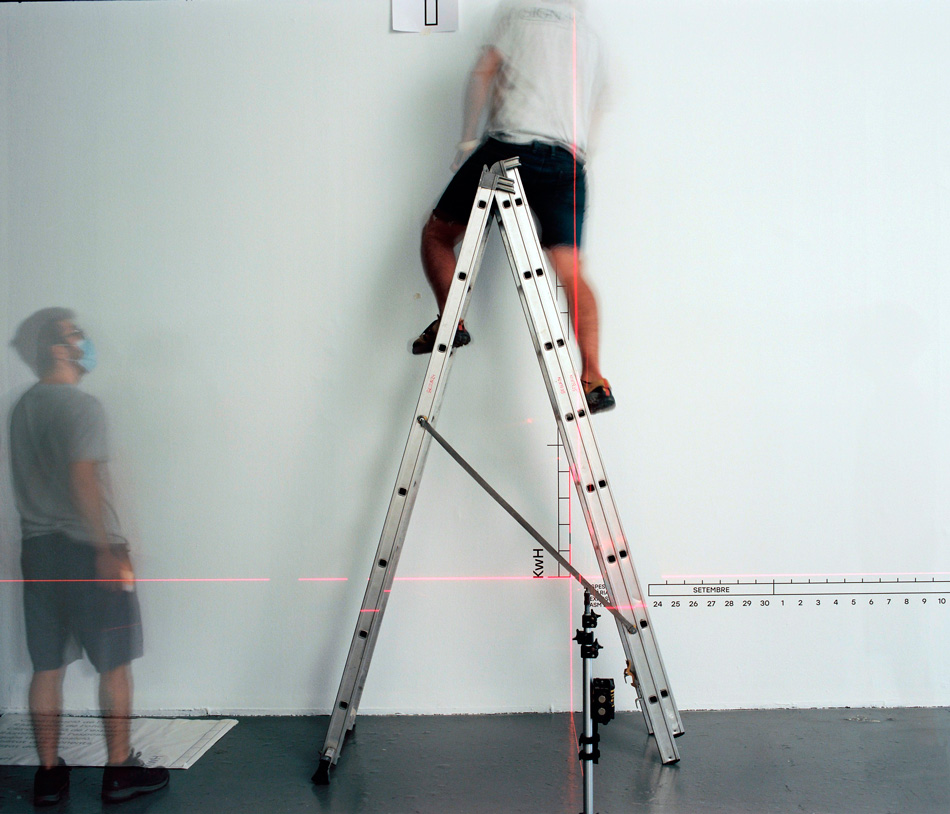 Group exhibition at Centre d'Arts Santa Mònica. 24th of September 2021 - 9th of January 2022. Barcelona, Spain. Photo: Paula Artés.
Group exhibition at Centre d'Arts Santa Mònica. 24th of September 2021 - 9th of January 2022. Barcelona, Spain. Photo: Paula Artés.
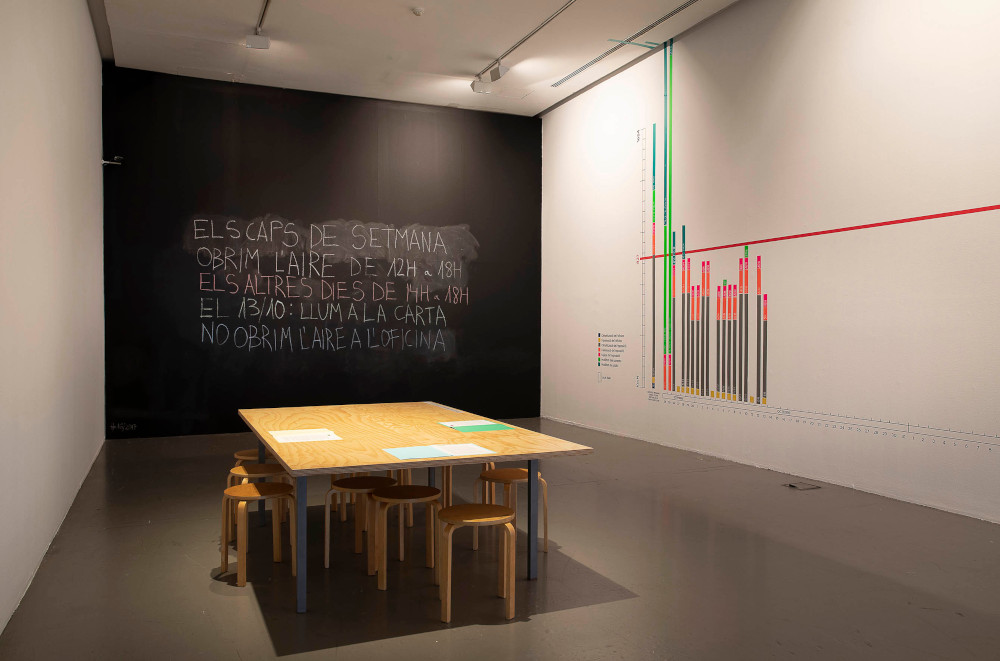 Group exhibition at Centre d'Arts Santa Mònica. 24th of September 2021 - 9th of January 2022. Barcelona, Spain. Photo: Paula Artés.
Group exhibition at Centre d'Arts Santa Mònica. 24th of September 2021 - 9th of January 2022. Barcelona, Spain. Photo: Paula Artés.
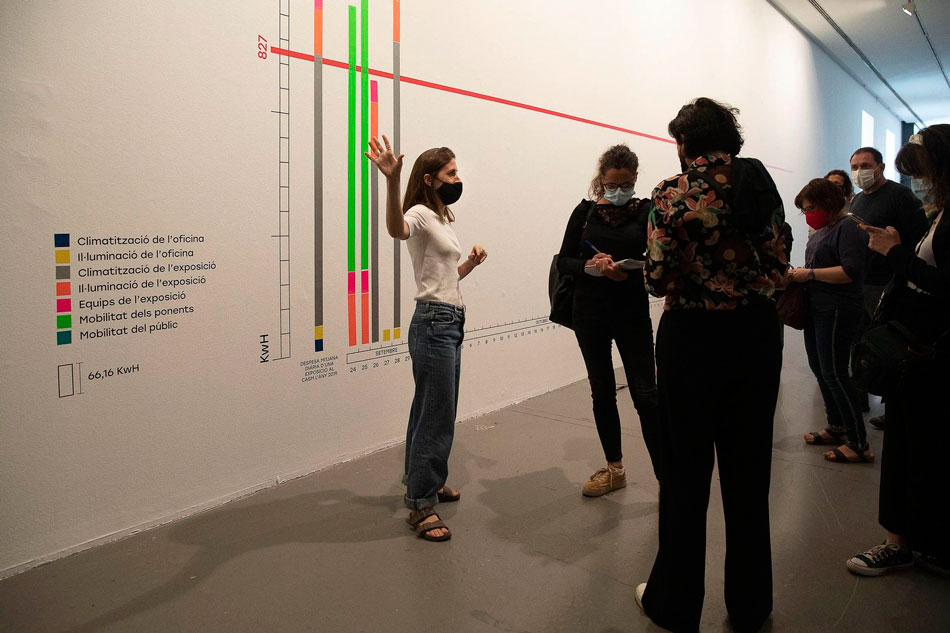 Group exhibition at Centre d'Arts Santa Mònica. 24th of September 2021 - 9th of January 2022. Barcelona, Spain. Photo: Diari Ara.
Group exhibition at Centre d'Arts Santa Mònica. 24th of September 2021 - 9th of January 2022. Barcelona, Spain. Photo: Diari Ara.
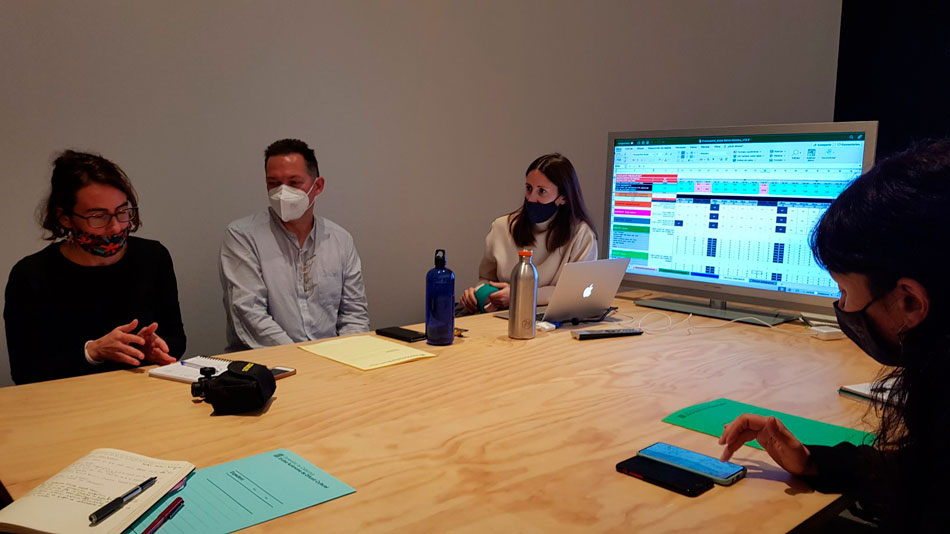 Detail of the second negotiation table that took place on the 23rd of November 2021. Group exhibition at Centre d'Arts Santa Mònica. 24th of September 2021 - 9th of January 2022. Barcelona, Spain. Photo: courtesy of the artist.
Detail of the second negotiation table that took place on the 23rd of November 2021. Group exhibition at Centre d'Arts Santa Mònica. 24th of September 2021 - 9th of January 2022. Barcelona, Spain. Photo: courtesy of the artist.
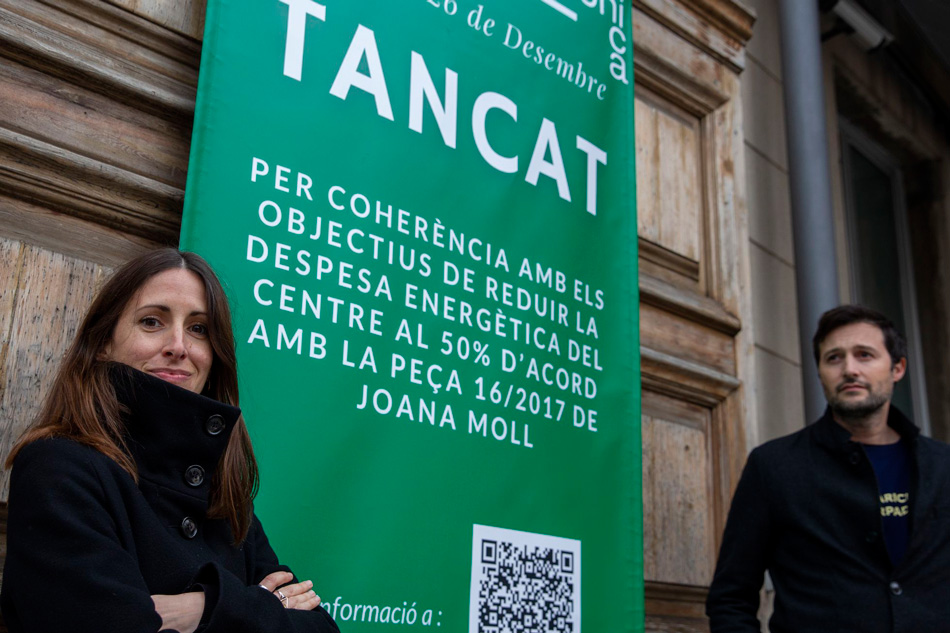 Enric Puig, director of Arts Santa Mònica, and the artist, in front of the banner that announced that the museum would close its doors during one week to meet the goal to reduce its energy consumption to half: "CLOSED. To be coherent with the goals to reduce the center's energy expenditure to 50% according to Joana Moll's piece 16/2017". Group exhibition at Centre d'Arts Santa Mònica. 24th of September 2021 - 9th of January 2022. Barcelona, Spain. Photo: El Pais.
Enric Puig, director of Arts Santa Mònica, and the artist, in front of the banner that announced that the museum would close its doors during one week to meet the goal to reduce its energy consumption to half: "CLOSED. To be coherent with the goals to reduce the center's energy expenditure to 50% according to Joana Moll's piece 16/2017". Group exhibition at Centre d'Arts Santa Mònica. 24th of September 2021 - 9th of January 2022. Barcelona, Spain. Photo: El Pais.
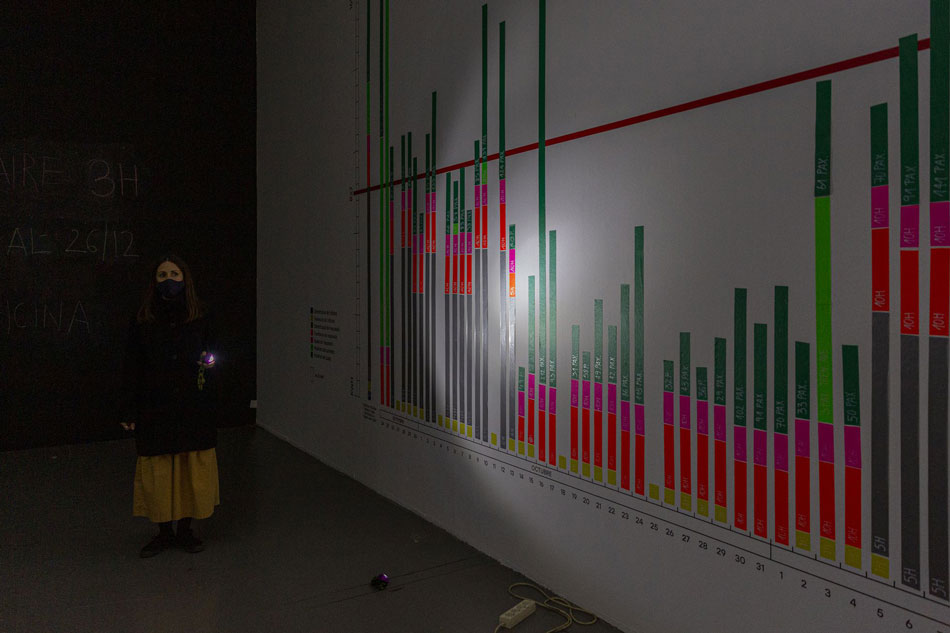 Detail of the wall mural graphic during the week that the art center closed its doors to meet the goal to cut the energy costs of the art center to half. Group exhibition at Centre d'Arts Santa Mònica. 24th of September 2021 - 9th of January 2022. Barcelona, Spain. Photo: courtesy of the artist.
Detail of the wall mural graphic during the week that the art center closed its doors to meet the goal to cut the energy costs of the art center to half. Group exhibition at Centre d'Arts Santa Mònica. 24th of September 2021 - 9th of January 2022. Barcelona, Spain. Photo: courtesy of the artist.
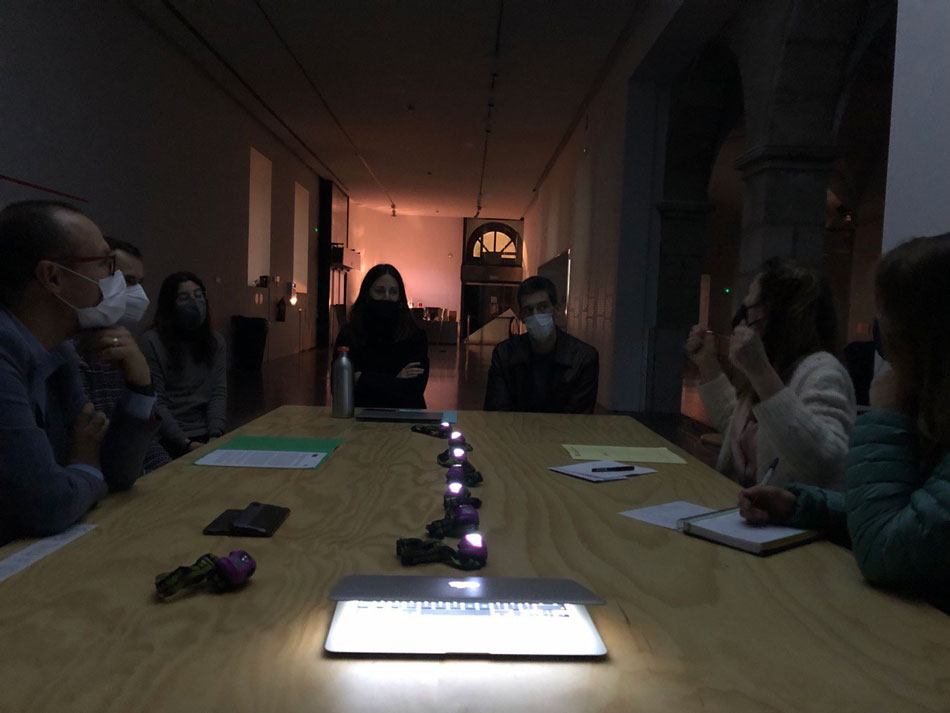 Detail of the third negotiation table that took place on the 21st of December 2021. Lights and heating were disconnected in order to save energy and meet the goal to halve the energy costs of the art center. Group exhibition at Centre d'Arts Santa Mònica. 24th of September 2021 - 9th of January 2022. Barcelona, Spain. Photo: courtesy of the artist.
Detail of the third negotiation table that took place on the 21st of December 2021. Lights and heating were disconnected in order to save energy and meet the goal to halve the energy costs of the art center. Group exhibition at Centre d'Arts Santa Mònica. 24th of September 2021 - 9th of January 2022. Barcelona, Spain. Photo: courtesy of the artist.